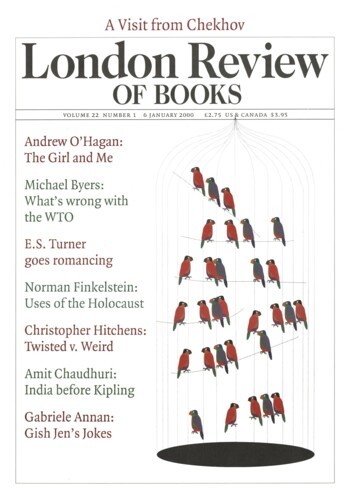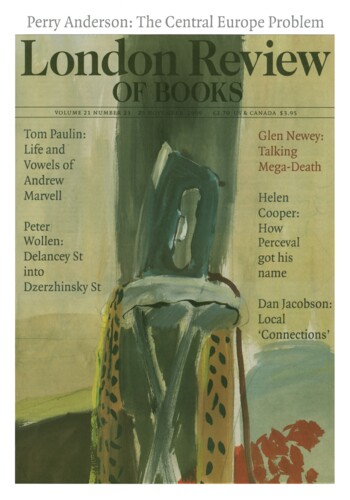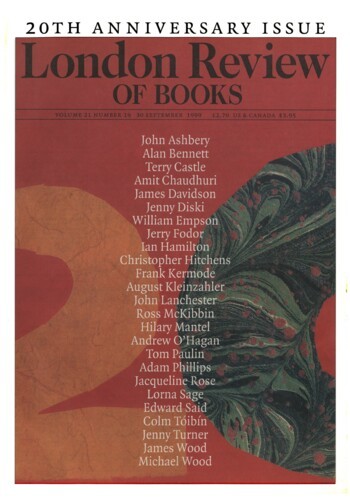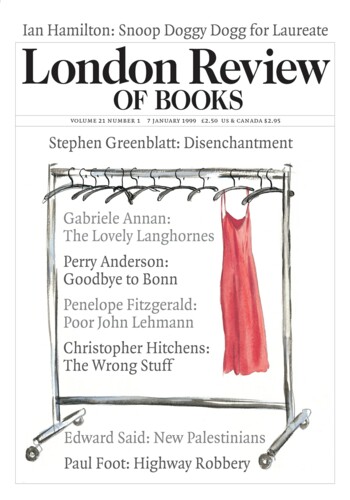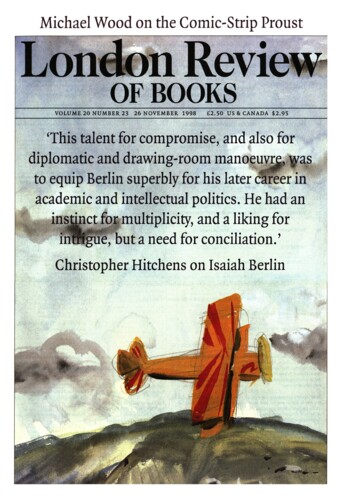Diary: The Candidates for the 2000 Presidency
Christopher Hitchens, 6 January 2000
It was in San Diego, California in the late summer of 1996 that the working hacks finally tumbled to what they had done. A Republican National Convention had been arranged, as a sort of soundstage or a mixed-media event, entirely for the convenience of the press and TV. The delegates were mere extras on the set, the coronation of the two nominees was a sure thing, the feral extremists and fundamentalists had been tidied out of sight, the corporate-sponsorship logos were beautifully placed, the camera angles and background briefings were the chief preoccupation of the Party managers and – there was exactly nothing to cover, nothing to transmit, and nothing to write about. A day or so passed, in this city of sinister charm (once described by Gore Vidal as ‘the Vatican of the John Birch Society’), in an agony of boredom and irrelevance. And then the ABC News Nightline team, the flagship of supposedly serious coverage, announced that it was vacating its skybox and leaving town. No story. Thus did the grand tradition of Convention reporting – a tradition that spans Mencken and Ed Murrow – come to its close in bathos and ennui. And ask anyone what they can remember about the utterly null Democratic Convention in Chicago a week or so later: the only possible comment was by way of pointed contrast to the same Convention in the same city in 1968, when politics was still for real. (The Mayor of Chicago is still called Richard Daley, but with the mediocre son all resemblance ends.)’‘
